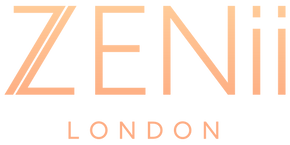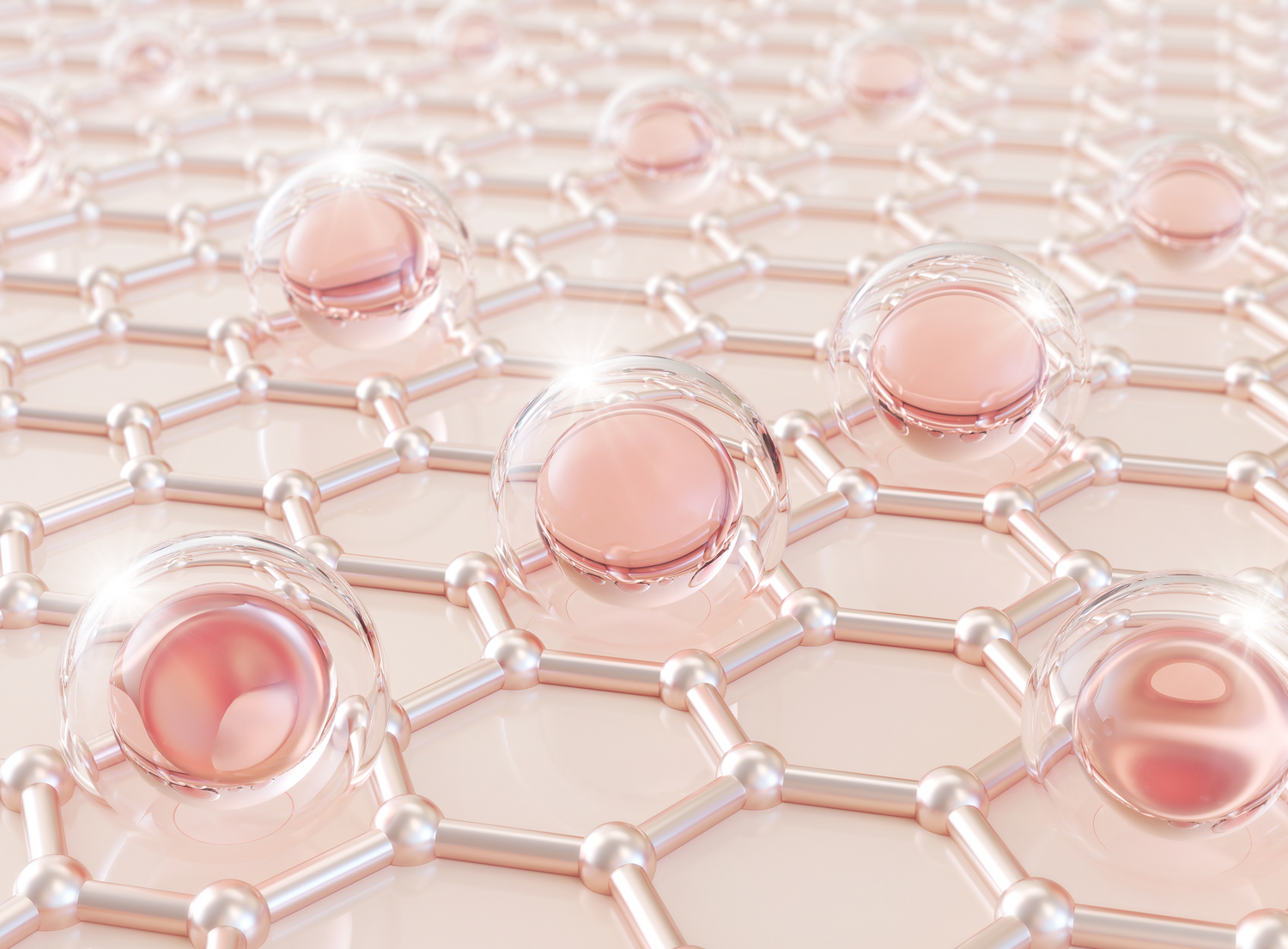In this blog I’ll take you through some of the essential co-factors required for collagen production.
These are contained within ZENii Fusion in safe amounts, considered optimal to ensure a favourable environment for collagen to be produced and maintained. I will also point to some recognised dietary sources of these co-factors.
What is collagen?
Collagen is a structural protein found in all connective tissues throughout the body. It provides strength and flexibility to tendons, joints and to the skin. In the skin, cells called fibroblasts produce collagen and stroma – extracellular material that surrounds the cells.
Collagen is made both within the fibroblasts and extracellularly. Its synthesis begins with a process called transcription from DNA to messenger RBA within the nucleus (or control centre) of fibroblasts. The next step, which is called translation, (where proteins are formed from amino acids) occurs in another part of the cell called the endoplasmic reticulum. For these processes to occur smoothly and successfully, certain other molecules (co-factors) are required.
Some studies show that taking an oral collagen supplement can improve hydration and elasticity and reduce wrinkling of the skin. As well as optimising collagen intake, ZENii Fusion also contains the key co-factors in safe amounts, required in its production.

First things first, what is a co-factor?
A co-factor is a non-protein chemical compound or metallic ion that is required for an enzyme’s role as a catalyst. Co-factors are essential players in cellular metabolism, assisting enzymatic catalysis and preserving the structural integrity of proteins.
In order to function effectively, the enzymes involved in collagen synthesis require specific co-factors. Many of those essential in collagen production belong to a family of enzymes called prolyl hydroxlases. These are broadly responsible for post-translational (early in the process of protein formation) modifications - specifically the chemical process called hydroxylation within the collagen peptide chains. These modifications are essential for stabilisation of the collagen triple helix structure.
Essential Co-factors
Vitamin C
One the the key co-factors involved in collagen synthesis is Vitamin C, also known as ascorbic acid. This is perhaps one of the most well-known co-factors in collagen synthesis. It is an essential nutrient required to maintain the activity of 2 groups of enzymes responsible for the addition of hydroxyl (OH) groups to the amino acids proline and lysine. This process is fundamental to ensure correct folding and stability of collagen molecules.
A deficiency in Vitamin C leads to weakened collagen and delayed wound healing. This is condition is known as scurvy and is characterised, amongst other symptoms, by bleeding gums and easy bruising.
Great sources of dietary vitamin C are citrus fruits, tomatoes and potatoes.
ZENii Fusion contains 120mg (150 % RDA)
Vitamin B6
This co-factor is crucial to collagen synthesis, being involved in the conversion of the amino acid proline, to hydroxyproline- contributing to the stability of the collagen triple-helix structure.
Great sources of dietary Vitamin B6 are meat, fish, eggs and dairy products . Great plant-based sources are avocado, carrots, sweet potatoes, green beans
ZENii fusion contains 1mg (71% RDA)
Vitamin A
This vitamin is known as the Regenerator and supporter of healthy skin. Vitamin A supports skin cell turnover, enabling recovery after injury and maintenance of a fresh, youthful complexion. Vitamin A is a precursor to retinoic acid, influencing gene expression and stimulating collagen production. The regenerative power of Vitamin A is harnessed in dermatological treatments such as retinols, tretinoin and Roaccutane (for acne).
Examples of some great dietary sources of Vitamin A include eggs, carrots, sweet potato and green leafy vegetables
ZENii Fusion contains 100mg (12.5% RDA).

Zinc
Zinc is an essential trace element that plays a crucial role in various biological processes, including collagen production. Zinc is involved in multiple aspects of collagen production from enzyme activity and gene expression, to protein structure stabilisation and wound healing.
One of the most important roles of zinc is in the function of enzymes responsible for the maturation and processing of collagen molecules. These include pro-collagen peptides which cleave off the N- and C- terminal pro-peptides from procollagen to form mature collagen molecules.
It is worth noting that an excess of zinc can interfere with cellular processes, and it is therefore important to ensure an appropriate balance of zinc, and like copper, ingesting too much can be dangerous.
Dietary sources rich in zinc include shellfish, eggs, dairy, dark chocolate, wholegrain, seeds, nuts and spinach
ZENii Fusion contains 10mg (100% RDA).
Copper
Copper is a trace element which contributes to the structural integrity of connective tissues.
It is a co-factor for lyyl oxidase, one of the enzymes involved in collagen cross-linking, and it is also involved in many other chemical processes including those in the brain, heart, kidneys and muscles.
As well as its roles in collagen production, copper also assists in iron absorption. Because copper balance is very tightly controlled, deficiency is very rare and fluctuations in copper levels have potential for very serious side effects, its supplementation is not usually recommended.
It is for this reason that is it not included in ZENii collagen supplements.
Dietary sources are almost always sufficient. It is found in some of the same, mineral-rich foods as zinc – these include nuts, dark chocolate, oysters, mushrooms, spinach, chickpeas, liver.
Selenium
Selenium is another trace element whose presence is required for various biological processes.
Whilst selenium is not itself a primary co-factor in collagen synthesis, it indirectly influences collagen metabolism and connective tissue health through its role as a component in selenoproteins, which help to maintain a healthy environment for cells within tissues by their roles as antioxidants – mopping up free radicals to protect against tissue damage and collagen degredation.
Dietary sources of Selenium include : brazil nuts, cashews, eggs, sunflower seeds, chicken, beef, fish, spinach, mushrooms, liver, baked beans!
Silica
Silica is an essential trace mineral predominantly known for its involvement in maintaining bone density. Recent research, however, suggests that silica is also a key ingredient in collagen and elastin production in the skin too where it acts as a glue, holding the fibres together. The exact mechanism is not yet fully understood but it is thought to play a role in the deposition of collagen within the extracellular matrix and to contribute to the cross-linking of collagen fibres there, resulting in enhanced tissue strength.
Silica deficiency is known to result in premature ageing or the skin, hair and nails and loss of tissue elasticity.
Food sources include green beans, bananas, brown rice.
ZENii Fusion contains 7mg of silica (as silicone dioxide) around 50% RDA.
Hyaluronic Acid
I couldn’t discuss collagen supplements and co-factors without giving Hyaluronic Acid (HA) a mention.
Whilst HA isn’t directly involved in collagen synthesis itself, it plays an essential role in supporting and organising collagen and overall tissue health within the extracellular matrix.
HA has multiple functions, including moisture-retaining properties, tissue support, it is involved in cell migration to areas requiring repair and it is also anti-inflammatory. It is a key component in creating an environment for collagen-producing cells to function and in the maintenance of collagen structure and function.
Clinical studies have shown that 105mg daily of Hyaluronic Acid taken orally can result in improvements in hydration and elasticity of the skin.
Dietary sources rich in hyaluronic acid include bone broth, as well as starchy root vegetables, citrus fruits, leafy green veg and seeds and nuts.
ZENii Fusion contains 150mg of Hyaluronic acid.
Overall
Collagen synthesis is a complex process and is dependent on multiple co-factors and as well as a suitable environment. This is by no means an exhaustive or comprehensive walk-through of all the chemicals involved or of all the details in the chemical process, but I hope it has served as a useful and interesting summary of some of the most important ones.
As always, it is advisable to consult with a healthcare professional or nutritionist before making any significant changes to your diet or supplement regimen, and a balanced, nutritious diet is recommended for optimal overall health and wellbeing.



